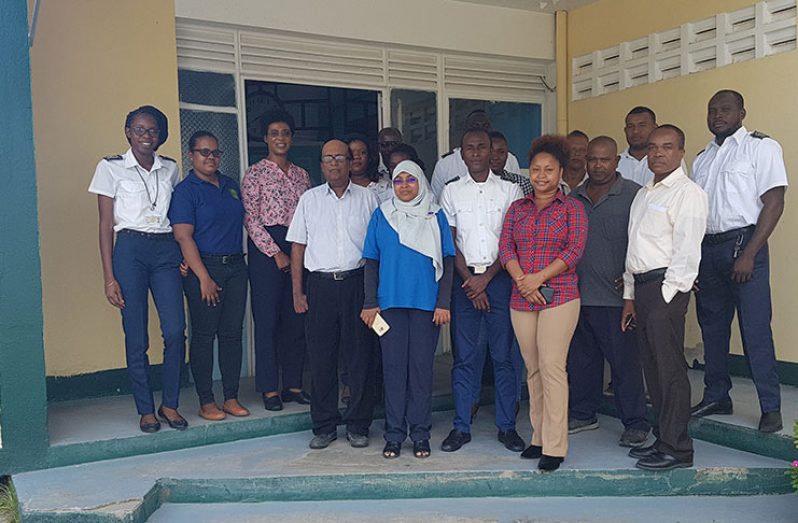THE Caribbean Agricultural Health and Food Safety Agency (CAHFSA) for the past three days has provided training in plant protection and risk management to staffers at the National Agriculture Research and Extension Institute (NAREI).
The training comes against the background of efforts by Guyana to place heavy focus on increasing exports and minimising imports.
The three-day training is aimed at helping NAREI to create a well-organised and coordinated plant health system for the Region, which will aid in increasing regional and extra-regional trade and preventing phytosanitary vulnerability due to the risk of introducing pests and diseases.
Juliet Goldsmith, a plant health specialist with CAHFSA, facilitated the training session which was described as very educational by those in attendance.
Goldsmith told the gathering that Guyana, as a sovereign country, has a right to put measures in place to protect itself from health risk.
“You have a right but those rights also come with certain obligations. You don’t do it just to protect your farmers or local economy. It is about understanding that you are a part of a global community and you are not favouring anyone or a member of the community over anyone and that is what the risk assessment process is about,” the plant health specialist said.
Market access, she said, is another side of the coin when dealing with risk assessment.
“This is where you have to make sure the information you are providing to your trading partner is good enough for them to do a fair assessment of the risk from Guyana.
“When you are importing you are concerned with protecting yourself but you also have that obligation when you are exporting to make sure you are not exporting the same sort of risk to the other countries. You have to make sure you are not exporting pest, disease or unsafe food that will affect their population,” Goldsmith said.
Meanwhile, NAREI’s Deputy Chief Executive Officer and the head of the National Plant Protection Organisation, Brian Sears, said that plant risk is important to Guyana and it is vital to develop the capacity to deal with pest and disease.
“It is important that we develop the capacity within the institute within Guyana and in general to be able to provide the documentation and information necessary for us to gain access to the international market, because if we are encouraging farmers to expand on cultivation, then we have to assist them in finding market for the increased production and we do not want to make mistakes when we submit this information. We want to get it right from the beginning.”
The workshop started on Tuesday and ended on Thursday.




.png)









